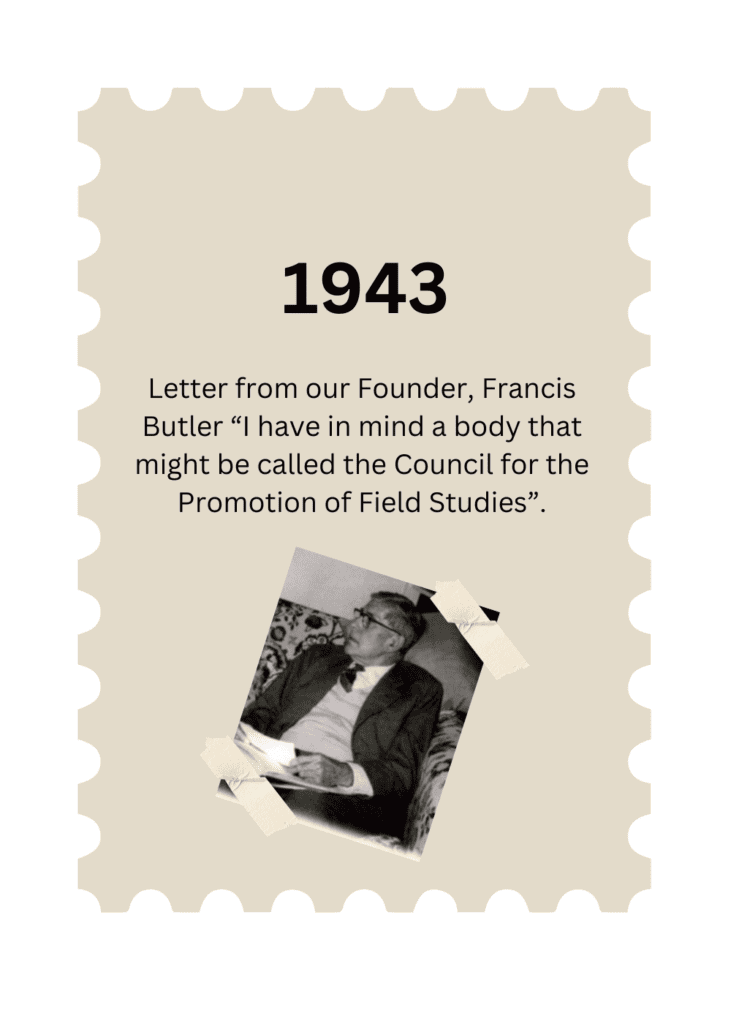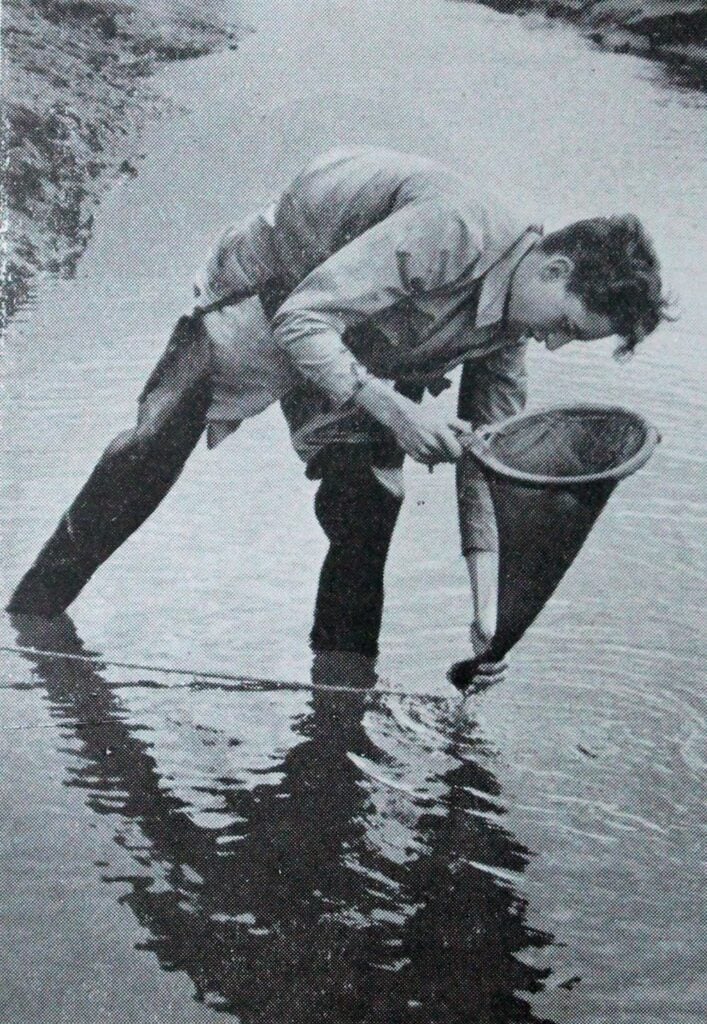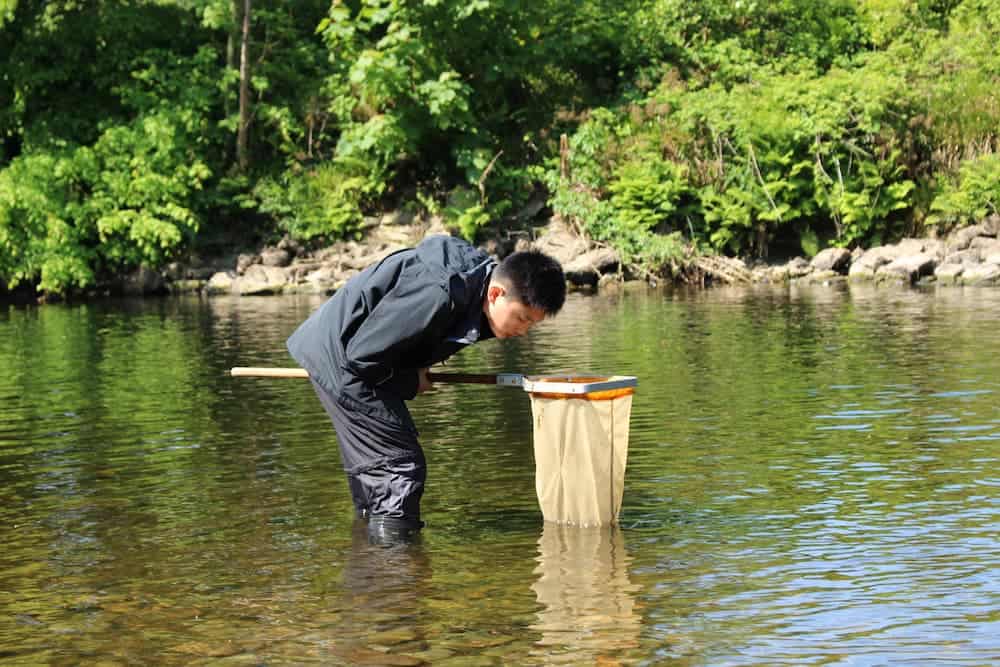from CEO Mark Castle
The Field Studies Council was created on 10th December 1943 which makes us older than the NHS and our National Parks. Whilst I have my eyes firmly fixed on our future, I took a look back through the archives and reflected on our 80 years of offering fieldwork and outdoor learning to millions of residential and day visitors.
Despite enormous social and technological advances since the days of World War II, I’ve been struck by how many of the challenges the charity faces today have always been with us.
The coronavirus pandemic was probably the biggest threat and greatest challenge in our 80 years, but previous generations coped with three outbreaks of foot and mouth disease. which severely restricted fieldwork activities and customer travel.
While the war in Ukraine and conflict in the Middle East continue to push up the price of energy and supplies, the Korean War of the 1950s led to government cuts that almost put the Field Studies Council out of business before our 10th anniversary.

We kicked off our 80th Year with our Staff Conference and put up a timeline of the key happenings both at the charity and in the wider world of education and social policy. The similarities between then and now caused some wry amusement: teaching staff concerned about children being scared of tiny creatures, the stress of changeover days and the central importance of food. Jam tart and custard was an early hit, and then cake became and has remained a constant part of our lives.
My predecessors’ annual reports talk somewhat ruefully about insecure funding, a lack of government foresight when the planet needed those with field study skills. Concerns that learners could not afford to access outdoor learning is a recurring theme that runs right through our history and continues today.
There was no cosy golden age but the determination to keep going that really comes across.
More than once, drastic and difficult decisions had to be made to save the charity. Then, as now, the executive agonised over each one. This year saw us leave one of our very early centres at Malham Tarn.

There are of course, things that we are very happy to leave in the past. Horsehair mattresses, communicating by letter, rationing of both food and petrol, the lack of mains electricity and uncertain water supplies. The first mention of buying a refrigerator comes about 10 years into our history!
Today’s infrastructure team have their trials with listed buildings and carbon reduction targets. Their early colleagues could not get timber without a licence. Tools, paint and labour were in very short supply. Dale Fort resorted to collecting driftwood for both timber and nails, Juniper Hall had dry rot and Orielton had walls that were made of only wallpaper!

What always shines through, then as now, is the commitment to the vision of delivering great outdoor learning and a conviction that what we do really matters. The need to get outdoors into nature is as important now as it ever was – and, with more and more careers opening up in the environmental sector, the need to develop good field study is skills is more vital than ever.
An HMI report in 1965 said: “This year, the FSC comes of age. Its affairs have been conducted with imagination, resolution and prudence by men and women dedicated to its service; they can look back with pride and satisfaction upon 21 years of solid achievements and forward… with determination and energy to a period of accelerated growth and achievement”.
Just last year, the Investors in People assessor came to a remarkably similar conclusion, saying they found
“a universally shared sense of pride and passion in our purpose and standards.”
That’s quite an achievement considering all the trials we have overcome in the past few years, including a global pandemic and a major cost of living crisis.
I’m very proud that we celebrate our 80th anniversary on such solid foundations, and I think we owe a huge debt of gratitude to those on whose vision and tenacity the charity is founded.
